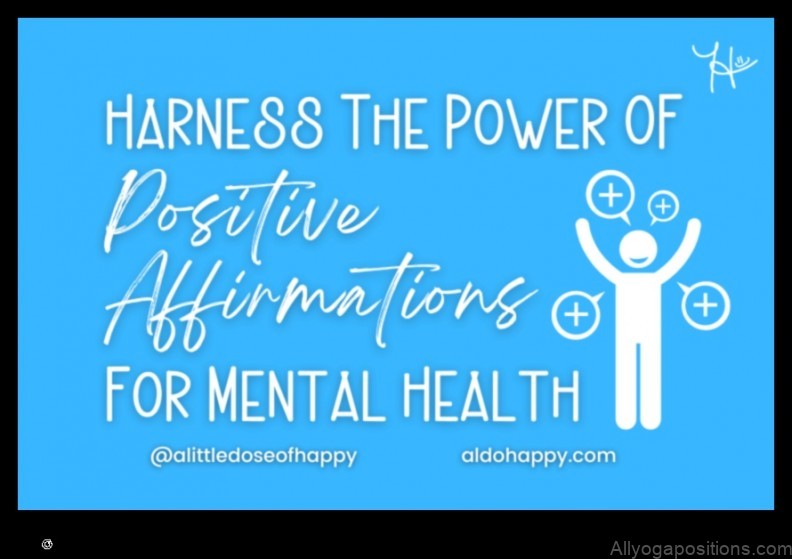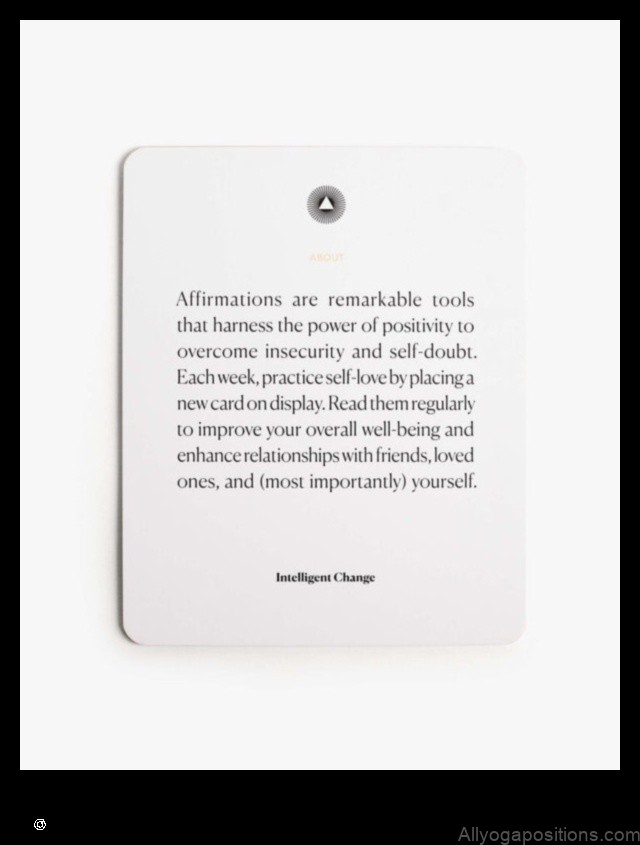
Meditation and Positive Affirmations: Harnessing the Power of Words
Meditation and positive affirmations are two powerful tools that can be used to improve your life. Meditation can help you to relax, focus, and clear your mind, while positive affirmations can help you to boost your self-esteem, overcome challenges, and achieve your goals.
In this article, we will explore the benefits of meditation and positive affirmations, and how you can use them together to create a powerful practice for self-improvement.

What are positive affirmations?
Positive affirmations are positive statements that you repeat to yourself on a regular basis. They are designed to help you to change your mindset and to focus on your goals.
When you repeat a positive affirmation, you are sending a message to your subconscious mind. Your subconscious mind is responsible for your beliefs, your attitudes, and your behaviors. When you feed your subconscious mind with positive affirmations, you are essentially programming it to believe in yourself and to achieve your goals.
How do positive affirmations work?
Positive affirmations work by changing your mindset. When you repeat a positive affirmation, you are essentially telling yourself that you are capable, worthy, and deserving of success. This can help to boost your self-esteem, improve your mood, and increase your motivation.
Positive affirmations can also help you to overcome challenges. When you are faced with a difficult situation, repeating a positive affirmation can help you to stay positive and focused on your goals.

Benefits of positive affirmations
There are many benefits to using positive affirmations, including:
- Increased self-esteem
- Improved mood
- Increased motivation
- Reduced stress
- Improved sleep
- Enhanced creativity
- Increased productivity
- Improved relationships
How to use positive affirmations for meditation
Meditation and positive affirmations are a powerful combination that can be used to achieve a variety of goals. Here are a few tips for using positive affirmations for meditation:
- Choose affirmations that are specific, positive, and believable.
- Repeat your affirmations aloud or in your mind during meditation.
- Focus on the meaning of your affirmations and allow them to sink into your subconscious mind.
- Be patient and consistent with your practice. It takes time for positive affirmations to work their magic.
Examples of positive affirmations for meditation
Here are some examples of positive affirmations that you can use for meditation:
- I am calm, centered, and at peace.
- I am loved, supported, and cherished.
- I am capable, worthy, and deserving of success.
- I am healthy, whole, and full of vitality.
- I am grateful for all the good in my life.
Tips for using positive affirmations for meditation
Here are a few tips for using positive affirmations for meditation:
- Choose a quiet place where you won’t be disturbed.
- Sit or lie in a comfortable position.
- Close your eyes and take a few deep breaths.
- Repeat your affirmations aloud or in your mind.
- Focus on the meaning of your affirmations and allow them to sink into your subconscious mind.
- Be patient and consistent with your practice. It takes time for positive affirmations to work their magic.
Common mistakes to avoid when using positive affirmations for meditation
Here are a few common mistakes to avoid when using positive affirmations for meditation:
- Don’t expect immediate results. It takes time for positive affirmations to work their magic.
- Don’t be afraid to experiment with different affirmations
Topic Answer Meditation Meditation is a practice that involves focusing the mind on a particular object, thought, or activity in order to achieve a state of calmness or heightened awareness. Positive affirmations Positive affirmations are statements that are repeated over and over again in order to change one’s mindset and beliefs. Mindfulness Mindfulness is a state of awareness in which one is paying attention to the present moment, without judgment. Law of attraction The law of attraction is a belief that positive thoughts and actions can attract positive outcomes, while negative thoughts and actions can attract negative outcomes. Self-improvement Self-improvement is the process of making positive changes in one’s life in order to achieve a desired goal. II. What are positive affirmations?
Positive affirmations are positive statements that you repeat to yourself on a regular basis. They are designed to help you to focus on your goals, improve your self-image, and create a more positive outlook on life.
III. How do positive affirmations work?
Positive affirmations work by sending a message to your subconscious mind. When you repeat a positive affirmation over and over again, your subconscious mind begins to believe it, and this belief manifests itself in your reality.
For example, if you repeat the affirmation “I am loved and worthy,” your subconscious mind will start to believe that you are loved and worthy, and this belief will attract people and experiences into your life that confirm that you are loved and worthy.
Positive affirmations are not magic, but they can be a powerful tool for creating the life you want. When used consistently, positive affirmations can help you to change your mindset, overcome challenges, and achieve your goals.
IV. Benefits of positive affirmations
There are many benefits of using positive affirmations, including:
- Increased self-esteem
- Reduced stress and anxiety
- Improved mood
- Increased motivation
- Better sleep
- Enhanced creativity
- Improved relationships
- Greater success
Positive affirmations can help you to achieve your goals by creating a positive mindset and setting yourself up for success. When you repeat positive affirmations to yourself, you are essentially telling your brain that you believe in yourself and that you are capable of achieving anything you set your mind to. This can help to boost your self-esteem, reduce stress and anxiety, and improve your mood. Positive affirmations can also help you to stay motivated and focused on your goals. When you remind yourself of your goals on a regular basis, it can help to keep you on track and motivated to achieve them.
Positive affirmations can also help to improve your relationships. When you speak positively to yourself, it is more likely that you will speak positively to others. This can create a more positive and supportive environment in your relationships. Positive affirmations can also help you to be more understanding and compassionate towards others. When you are able to see the good in yourself, it is easier to see the good in others.
Overall, there are many benefits to using positive affirmations. They can help you to improve your self-esteem, reduce stress and anxiety, improve your mood, increase motivation, get better sleep, enhance creativity, improve your relationships, and achieve greater success.
V. How to use positive affirmations for meditation
Meditation and positive affirmations can be used together to enhance the benefits of each practice. When you meditate, you are quieting your mind and focusing on the present moment. Positive affirmations can help to maintain this focus and bring positive thoughts to your mind.
Here are some tips for using positive affirmations for meditation:
- Choose affirmations that are specific, positive, and present-tense.
- Repeat your affirmations silently or aloud during your meditation practice.
- Focus on the meaning of your affirmations and allow them to sink into your subconscious mind.
- Be patient and allow the benefits of positive affirmations to manifest in your life.
Here are some examples of positive affirmations that you can use for meditation:
- “I am calm and peaceful.”
- “I am loved and supported.”
- “I am healthy and whole.”
- “I am successful and prosperous.”
By using positive affirmations during meditation, you can help to create a more positive and peaceful mindset. This can lead to improved mental health, increased happiness, and greater success in all areas of your life.
VI. Examples of positive affirmations for meditation
Here are some examples of positive affirmations that you can use during meditation:
- “I am calm and peaceful.”
- “I am loved and supported.”
- “I am healthy and whole.”
- “I am successful and abundant.”
- “I am creative and expressive.”
- “I am intelligent and capable.”
- “I am loved and worthy.”
You can also create your own positive affirmations based on your own needs and goals. When choosing affirmations, it is important to make them specific, positive, and believable.
VII. Tips for using positive affirmations for meditation
Here are some tips for using positive affirmations for meditation:
- Choose affirmations that are specific, positive, and present-tense.
- Repeat your affirmations aloud or silently to yourself.
- Focus on the meaning of your affirmations and how they make you feel.
- Allow yourself to feel the emotions that come up as you repeat your affirmations.
- Be patient and persistent with your practice.
With regular practice, positive affirmations can help you to improve your mood, reduce stress, and increase your self-confidence. They can also help you to achieve your goals and live a more fulfilling life.
Common mistakes to avoid when using positive affirmations for meditationIX. Conclusion
Meditation and positive affirmations are powerful tools that can help you to improve your life. By combining the two practices, you can create a powerful synergy that can help you to achieve your goals, overcome challenges, and live a more fulfilling life.
If you are new to meditation or positive affirmations, I encourage you to start slowly and experiment with different techniques until you find what works best for you. Be patient and persistent, and you will eventually see results.
Thank you for reading!
X. FAQ
Q: What are positive affirmations?
Positive affirmations are positive statements that you repeat to yourself in order to change your mindset and beliefs. They can be used to improve your self-esteem, boost your confidence, and achieve your goals.Q: How do positive affirmations work?
Positive affirmations work by sending a message to your subconscious mind. When you repeat a positive affirmation over and over again, your subconscious mind begins to believe it, and this can lead to changes in your behavior and attitude.Q: What are the benefits of positive affirmations?
There are many benefits of positive affirmations, including:- Increased self-esteem
- Boosted confidence
- Improved mood
- Reduced stress
- Improved focus
- Increased motivation
- Achieved goals
Table of Contents
Maybe You Like Them Too
- Yoga for Emotional Healing A Gentle Practice for Cultivating Kindness
- Yoga for Tennis Players Improve Your Flexibility, Focus, and Performance
- Yoga for Emotional Resilience Progressive RelaxationA Gentle Practice to Help You Cope with Stress and Anxiety
- Yoga for Better Concentration 7 Mindful Practices to Improve Focus
- Yoga for Weight Loss Is it a Myth or Reality
